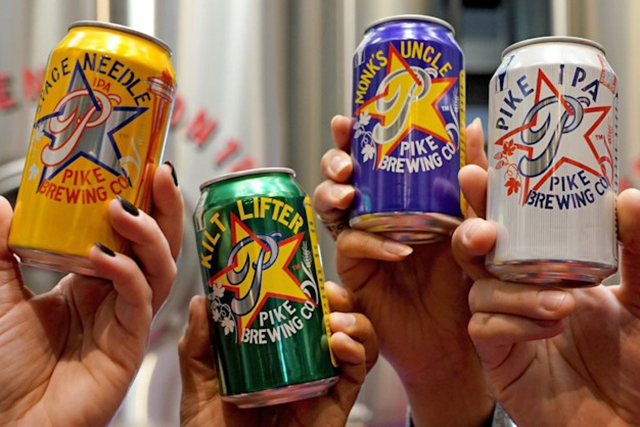
Although the switch to canning is prevalent among craft brewers, a secondary question that needs to be addressed is how those cans are packaged.
Plastic rings were quite standard for years, but they have been replaced by PakTech rings in a lot of instances. And some breweries have opted to box their cans, even as small as a four- or six-pack packages.
Barrio Brewing moved from PakTech to boxes several years ago said Master Brewer Dennis Arnold.
“Our main reason … was the advantage of being able to advertise our product on the shelf much better than cans in a ringer,” he said. “The added cost is a bit over a dollar more per case. We have not automated the packing process as we would rather employ people than machines.”
Arnold noted it’s impossible to know if the additional cost pays for itself in increased sales as their production has gone up in both kegs and cans year over year.
Pike Brewing recently made the switch to cans, including new package designs, and a new eight-head canning line.
“Sales are booming and the reception has been out of this world,” said owner and head of operations, Drew Gillespie.
He added that the Seattle brewery researched but ultimately decided to run a pilot program with cans. It chose one of its newer IPAs, Space Needle golden IPA, and ran it as a can offering to see how it was received.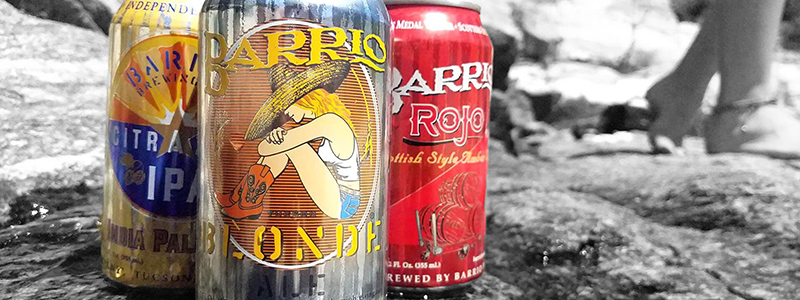
“The IPA did amazing and out preformed our traditional bottle offerings quickly,” he said. “This combined with market reports and observations that led us to conclude that cans were the future of craft beer.”
Just as with draft beer, Gillespie said the brand name is the first thing people think of, then the beer name and style.
”We have spent 30 years building trust in our brands and continue to leverage that whenever possible,” he said. “We recently released a new package look that still evokes our brand image while speaking to a different (younger) audience.”
Pike is phasing out all glass options. Gillespie said the ROI on switching was performed in 2017 while testing the Space Needle IPA cans.
”It did not take long to come to the conclusion that not only was this the right thing to do for sales and our customers but it had a strong ROI component as well,” he said. ”Our mission is to be a 100-year-old independent brewery and you don’t accomplish that by thinking in the short term.”
Pike started with compostable plastic rings because Gillespie said they loved their environmentally sustainable footprint and lightweight.
”What we quickly learned is that people really, really do not like the plastic rings, ” he said, ”they assume that they are all “dolphin chokers.”
They also looked at a paperboard style compostable six-pack holder, though it was so new to market that it was not cost effective. Pike settled on the PakTech six-pack holders and Gillespie said they are happy with them.
”Nationally a majority of beer drinkers may still purchase bottles, but we are not a national brand,” he said. ”Locally purchasing decisions seems to be made based on brand and style over package type and we observe in the market that an overwhelming majority of new brands are in cans.
”With 50 percent of the craft beer market share in the Pacific Northwest, we are confident that cans are the right choice.”


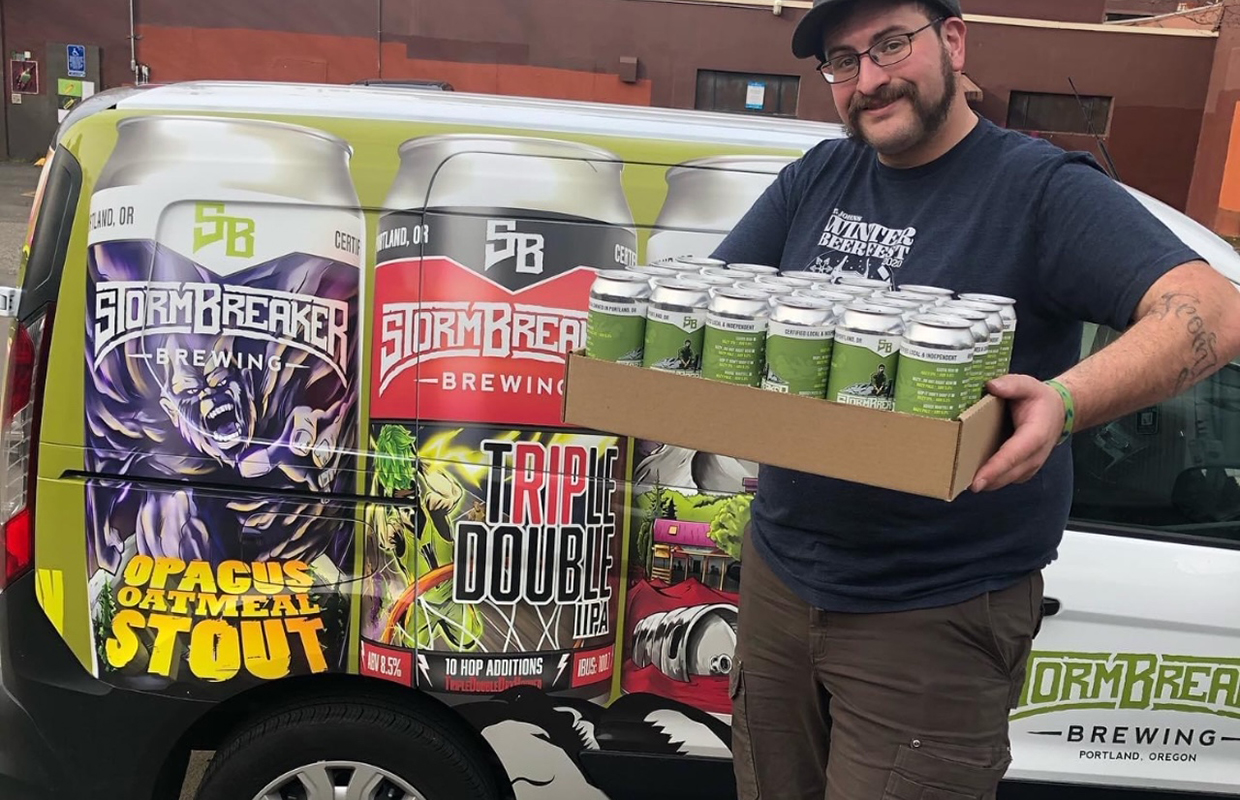
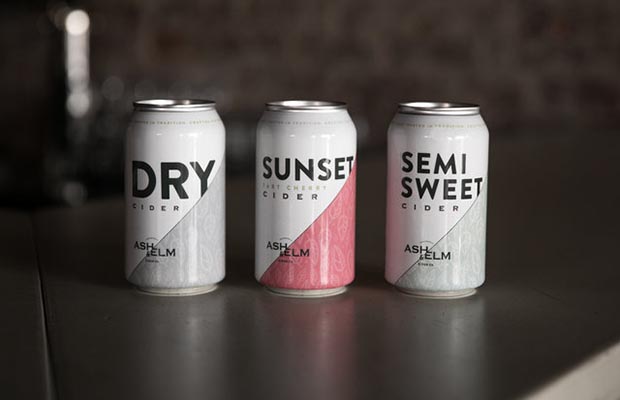
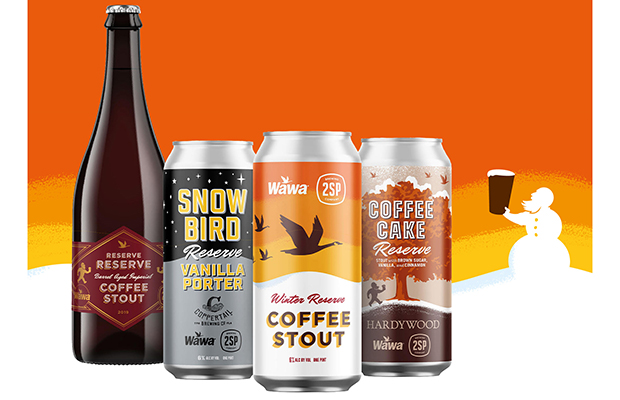
Be the first to comment